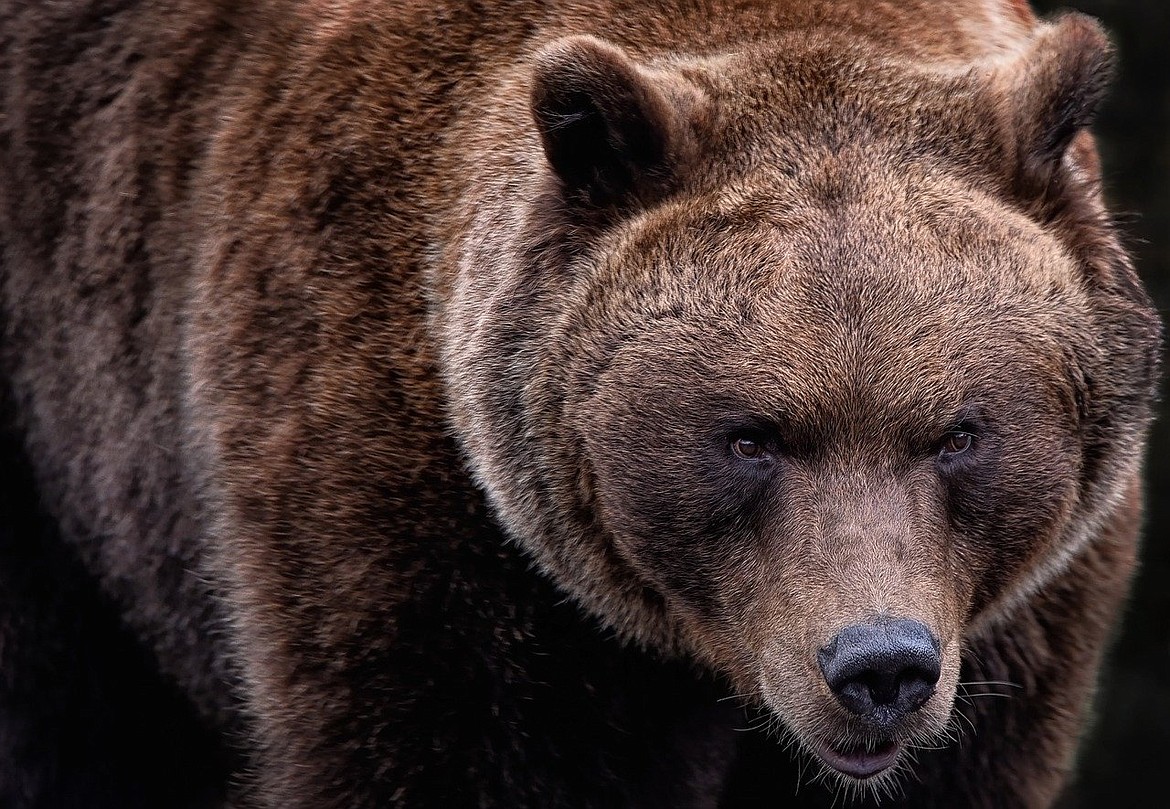Montana settles with conservation groups that sued to shorten wolf trapping season
Two conservation groups agreed to dismiss a lawsuit against the Montana Fish and Wildlife Commission this week after it adopted wolf and coyote trapping season regulations they said will protect threatened grizzly bears in Montana.
The groups reached a settlement with the state of Montana on Thursday days before the case was set to go to trial.
The settlement was reached after the Fish and Wildlife Commission adopted wolf trapping season regulations on Nov. 12 that restrict wolf trapping to Jan. 1 through Feb. 15 in Regions 1 through 5 and include new coyote trapping regulations also aimed at protecting grizzly bears from being unlawfully “taken” in violation of the Endangered Species Act.
The case had been slated to go to trial on Dec. 2. A judge signed an order granting the settlement and dismissal of the case Thursday after the stipulated agreement was submitted.
“Suffice it to say that the regulations were basically the settlement terms. Basically like, ‘If you pass these and don’t amend them, then we’ll agree to settle.’ And then that’s what they did,” Mike Bader, an adviser and spokesperson for the Flathead-Lolo-Bitterroot Citizen Task Force, one of the plaintiffs in the case, said in an interview Thursday afternoon.
Lizzy Pennock, the carnivore coexistence attorney with conservation group WildEarth Guardians, the other plaintiff in the case, said in a statement the settlement affirmed that the groups had been correct about the threats a longer trapping season would create for grizzly bears, which are listed as a threatened species under the Endangered Species Act.
The two groups sued the state, Fish and Wildlife Commission Chairperson Lesley Robinson, and Montana Gov. Greg Gianforte in September 2023 after the commission adopted new wolf and coyote trapping regulations for the upcoming season that implemented a floating opening date as early as Nov. 27 and run through March 15.
The two groups successfully argued that allowing such a long wolf trapping season would certainly increase the risk that grizzly bears would not be in their dens for the entire season and would be much more prone to being illegally trapped, and injured or killed by those traps, during the earliest and later parts of the season.
A federal judge in Missoula in November 2023 ordered the wolf trapping season be limited to Jan. 1 to Feb. 15 in FWP Regions 1 through 5 and in three counties along Montana’s north-central border where grizzlies might live.
The Ninth U.S. Circuit Court of Appeals last April upheld that seasonal restriction date-wise but said the district court needed to be more specific to the restriction so it only applies where grizzly bears are known to live.
The district court this past August redefined the geographic scope and also said the topic of coyote trapping was at issue when considering the illegal take of grizzly bears since the bears could also be incidentally trapped in coyote traps or snares.
And earlier this month, the Fish and Wildlife Commission adopted wolf trapping season regulations, which apply the Jan. 1 to Feb. 15 dates for Regions 1 through 5, new regulations for trappers protecting livestock and a permit system for coyote and other predator trappers that will help FWP collect data.
The adopted regulations also would put additional trap restrictions in place within 48 hours of a grizzly bear being incidentally trapped between Sept. 1 and Dec. 31.
“The terms of the settlement increase protection for grizzly bears across their habitat area in Montana, which is what we sought all along,” Citizen Task Force President Patty Ames said in a statement.
The terms of the stipulated settlement agreement will require the state to pay the two plaintiff groups a total of $210,000 in attorney’s fees and other expenses within 20 days.
Bader said the groups and FWP had identified at least 27 official records of grizzly bears being incidentally trapped over the years in Montana and that he believed the state didn’t want to risk further damages if it lost at trial.
He said he was not aware of any grizzlies being incidentally trapped during last year’s restricted wolf trapping season, which was the group’s main goal with the suit. Both he and Ames, the president of the Citizen Task Force, said they believed settling was in the best interests of all sides involved.
“It’s really in the best interest of the whole process … the money, time and expense that could be better put toward education programs about how to be bear safe, and secure your food, and carry bear spray, and things like that,” Bader said. “We’d rather see the state spending their money on that rather than fighting something that really made sense in the first place.”
Spokespersons for FWP and the Governor’s Office did not immediately respond to an email seeking comment on the settlement late Thursday afternoon.
Bader said grizzlies still face threats, and he does not believe they are recovered enough to be delisted from Endangered Species Act protections in two Montana ecosystems – the U.S. Fish and Wildlife Service said it would have a delisting decision by the end of January – but having the restricted season in place “takes away one more risk” to the bears.
“It’s not impossible that a bear might go out and step in one, but the odds are just so much lower than they were,” Bader said.
Blair Miller is a Helena-based reporter for the Daily Montanan, a nonprofit newsroom.


